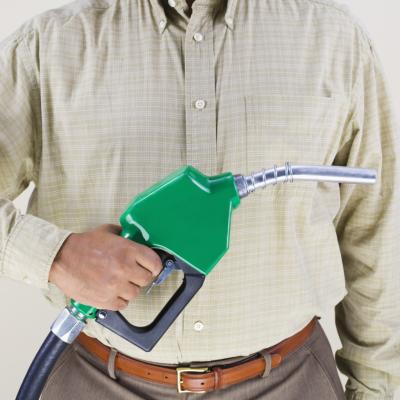
The term ethanol encompasses a wide range of pure alcohols. The distillation process that leaves behind this potent alcohol is essentially the same whether spirits or fuel alcohol is being created. It is added to gasoline to create fuels that are more environmentally friendly while still efficient in an internal combustion engine.
Pure ethanol is not typically used as a fuel. Instead, it is added to other substances to create a fuel that will burn well in most engines without requiring modifications to the engine. Fuels with ethanol added are designated with an E. The number after the E indicates the percentage of ethanol in the gasoline. For example, E10 fuel has a 10 percent ethanol content.
Ethanol is considered an important additive for fuel largely because of its effect on emissions. Carbon monoxide is one of the most harmful emissions produced by a gasoline engine, and the addition of as little as 10 percent ethanol to gasoline can result in an approximate 20 percent reduction in carbon monoxide emissions.
A 2007 study conducted by the Energy & Environmental Research Center at the University of North Dakota found that, in general, vehicles using fuel containing ethanol achieve better fuel economy. The study, done for the American Coalition for Ethanol, examined vehicles' fuel economy using fuel with various concentrations of ethanol additives. A Ford Fusion, for example, had 1 percent better fuel economy using E30 fuel compared with regular gasoline.
According to the Environmental Protection Agency, vehicle performance should not be adversely affected by using E10 fuel. This concentration of fuel accounts for approximately half the gasoline sold in the United States, so many drivers are accustomed to using it. Older engines should be monitored for changes in performance and undergo regular maintenance, because there is a slight chance ethanol could damage seals and gaskets.